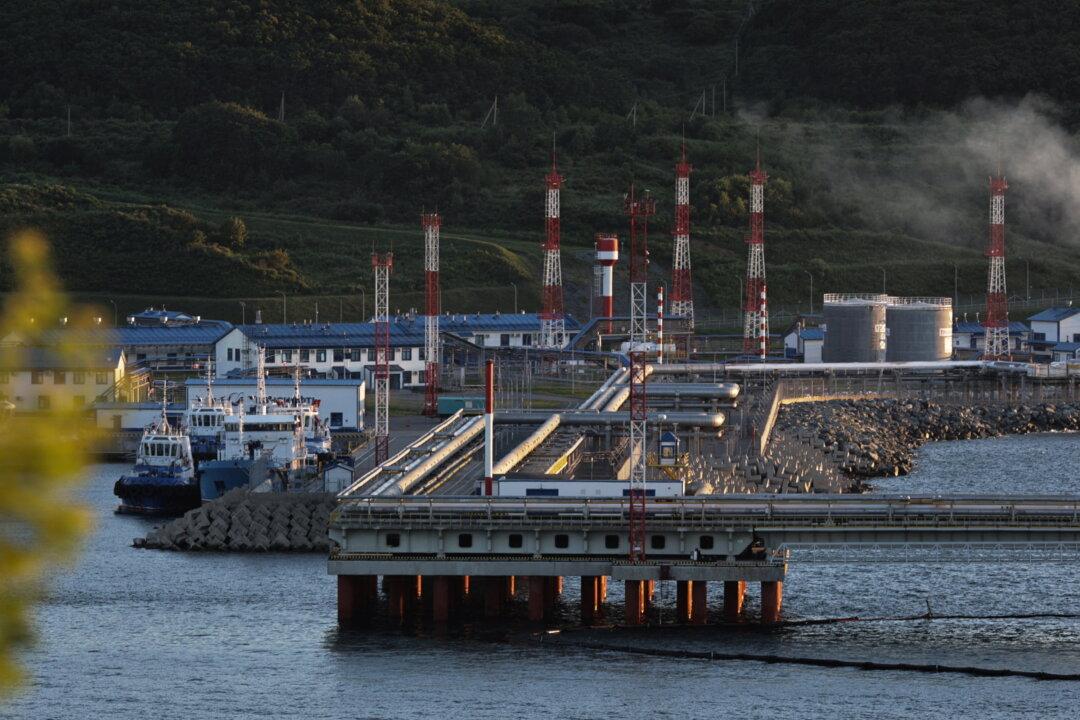LONDON—Oil prices fell on Thursday, extending sharp losses from the previous session, as China’s extension of lockdown measures to curb the COVID-19 spread exacerbated concerns that a slowdown in economic activity globally would hit fuel demand.
Brent crude futures lost 40 cents, or 0.4 percent, to $87.60 per barrel by 1002 GMT, near a late-January low. U.S. crude futures were down 41 cents, or 0.5 percent, at $81.53 a barrel, near a mid-January low.





